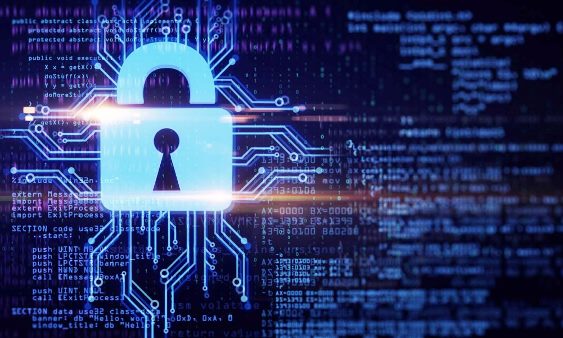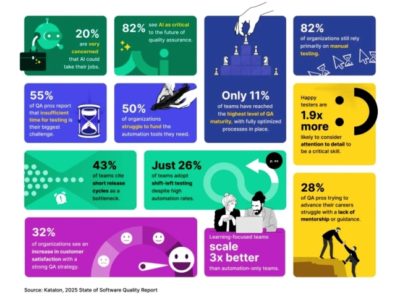Welcome to Day 1 of our journey into the crucial realm of cybersecurity and cybercrime. In an era where digital technology and connectivity underpin every aspect of our lives, understanding the fundamentals of cybersecurity and recognizing the far-reaching consequences of cybercrime is more important than ever.
RELATED: Addressing the growing cybersecurity skills gap in Africa
This session aims to provide an in-depth introduction to these concepts, highlighting their significance for individuals, businesses, and society as a whole.
Defining Cybersecurity and Cybercrime
Cybersecurity is the practice of protecting systems, networks, and data from digital attacks. These attacks are intended to access, manipulate, or destroy sensitive information, extort money, or disrupt business processes. Cybersecurity encompasses a range of measures, including the use of firewalls, encryption, and multi-factor authentication, all designed to maintain the confidentiality, integrity, and availability of data, thereby protecting information from unauthorized access or harm .
Cybercrime refers to illegal activities conducted through digital means or involving computer systems. These crimes range from data breaches and identity theft to more sophisticated attacks like ransomware, which involves cybercriminals demanding a ransom to restore access to encrypted data. Cybercrime is a global issue with significant implications, as criminals often operate across borders, complicating efforts to combat these threats .
The Rising Cost of Cybercrime and Its Impact
The financial impact of cybercrime is staggering, with global estimates suggesting that cybercrime costs will exceed $10.5 trillion annually by 2025 . These costs encompass direct financial losses, productivity setbacks, reputational damage, and the compromise of sensitive information. The frequency and severity of cyberattacks are escalating, making it imperative to understand their impact on both individuals and organizations.
Impacts on Individuals:
– Financial Loss: Cybercriminals target individuals through scams, phishing attacks, and identity theft, leading to substantial financial losses .
– Privacy Violations: Unauthorized access to personal data results in privacy breaches, exposing sensitive information to malicious actors .
– Emotional Distress: Victims of cybercrime often experience anxiety, stress, and a sense of vulnerability .
Impacts on Organizations:
– Economic Damage: Businesses face significant financial losses due to cyberattacks, which include costs associated with data breaches, system repairs, and legal ramifications .
– Reputation Damage: Cyber incidents can severely damage an organization’s reputation, eroding customer trust and harming relationships with stakeholders .
– Operational Disruption: Cyberattacks can disrupt business operations, leading to downtime, loss of revenue, and decreased productivity .
The Importance of Cybersecurity Awareness
Cybersecurity awareness is essential for everyone, from individuals to large corporations. As the digital landscape evolves, so do the tactics employed by cybercriminals. Staying informed about potential threats and understanding how to protect oneself and one’s organization are critical in mitigating risks .
Key Reasons for Cybersecurity Awareness:
– Protection of Personal Data: Understanding cybersecurity helps individuals protect their personal information from unauthorized access and misuse .
– Preventing Financial Loss: Awareness of common cyber threats can prevent individuals and organizations from falling victim to scams and fraud .
– Maintaining Trust: For businesses, demonstrating a commitment to cybersecurity builds trust with customers, partners, and stakeholders .
– Ensuring Compliance: Many industries are subject to regulations requiring robust cybersecurity measures. Awareness helps organizations meet these compliance requirements and avoid penalties .
Real-World Examples of Cybercrime Incidents
To underscore the importance of cybersecurity and the impact of cybercrime, let’s explore a few notable real-world examples:
1. The WannaCry Ransomware Attack (2017):
In May 2017, the WannaCry ransomware attack affected hundreds of thousands of computers in 150 countries. The malware encrypted files on infected systems and demanded ransom payments in Bitcoin for decryption. The attack caused widespread disruption and financial losses estimated at $4 billion, impacting healthcare services, businesses, and government agencies . This incident underscored the necessity of robust cybersecurity measures and regular system updates.
2. Equifax Data Breach (2017):
In 2017, Equifax, a major credit reporting agency, was hacked, exposing personal information, including Social Security numbers, of approximately 147 million individuals. The breach led to lawsuits, financial settlements, and a loss of consumer trust . This incident highlighted the importance of data protection and the potential consequences of inadequate cybersecurity practices.
3. Target Data Breach (2013):
In 2013, Target experienced a data breach that compromised the credit card information of over 40 million customers. The attackers gained access through a third-party vendor, exploiting weak security measures. The breach resulted in significant financial losses for Target, legal repercussions, and a damaged reputation . This incident emphasized the importance of securing supply chain networks and ensuring third-party partners adhere to robust cybersecurity practices.
4. Yahoo Data Breaches (2013-2014):
Yahoo suffered two massive data breaches, impacting over 3 billion user accounts. The stolen information included names, email addresses, and hashed passwords. The breaches were disclosed in 2016, leading to public outrage and a decline in user trust. These incidents demonstrated the need for timely breach reporting and strong data encryption practices .
5. The Colonial Pipeline Ransomware Attack (2021):
In May 2021, the Colonial Pipeline, a major fuel pipeline in the U.S., was attacked by ransomware, disrupting fuel supply across the East Coast. The attackers demanded a ransom for data decryption, leading to fuel shortages and price hikes . This incident highlighted the vulnerability of critical infrastructure to cyber threats and the necessity for comprehensive cybersecurity strategies.
Surveys Highlighting the State of Cybersecurity
1. Accenture’s Cost of Cybercrime Study (2021):
Accenture’s study revealed that the average annual cost of cybercrime for companies increased by $1.4 million to $13.0 million over the previous year. The study emphasized the growing complexity and sophistication of cyber threats, with ransomware and data breaches being the most costly incidents for businesses .
2. Norton’s Cybersecurity Insights Report (2020):
According to Norton’s report, 69% of Americans are more concerned about their online security than ever before, with 42% experiencing cybercrime in the past year. The report also highlighted that despite rising concerns, only 37% of respondents feel well-protected against cyber threats .
3. CyberEdge’s Cyberthreat Defense Report (2021):
CyberEdge’s report indicated that 86.2% of organizations experienced at least one successful cyberattack in the past year, with 64% of companies expecting cybercrime to increase. The survey underscored the need for improved cybersecurity measures, especially in light of the increasing number of remote workers due to the COVID-19 pandemic .
Conclusion
Cybersecurity and cybercrime are critical issues that permeate every aspect of our digital lives. From protecting personal data to safeguarding national infrastructure, robust cybersecurity measures are essential. By understanding cyber threats and implementing proactive security practices, we can mitigate risks and build a more secure digital future.
Today’s session provided a foundational understanding of cybersecurity and cybercrime. In the upcoming sessions, we will delve deeper into specific aspects of cybersecurity, offering practical tips and strategies to enhance your digital security posture.
Join us tomorrow as we explore creating strong passwords and effective password management techniques. Together, we can build a resilient and cyber-secure community.
### References
- Accenture. (2021). The Cost of Cybercrime. Retrieved from [Accenture](https://www.accenture.com/us-en/insights/security/cost-cybercrime-study)
- BBC News. (2017). Equifax Data Breach: What You Need to Know. Retrieved from [BBC News](https://www.bbc.com/news/technology-41137016)
- CISA. (2021). Cybersecurity & Infrastructure Security Agency – Cybersecurity Tips. Retrieved from [CISA](https://www.cisa.gov/cybersecurity)
- CNN Business. (2013). Target Breach: 40 Million Credit Card Accounts Compromised. Retrieved from [CNN Business](https://money.cnn.com/2013/12/19/technology/security/target-credit-card/index.html)
- CNBC. (2016). Yahoo Confirms 2013 Data Breach. Retrieved from [CNBC](https://www.cnbc.com/2016/12/14/yahoo-reports-new-hack.html)
- National Institute of Standards and Technology (NIST). (2021). Cybersecurity Framework. Retrieved from [NIST](https://www.nist.gov/cyberframework)
- Norton. (2021). WannaCry Ransomware Attack: What We Know. Retrieved from [Norton](https://us.norton.com/internetsecurity-malware-wannacry-ransomware-attacks.html)
- Reuters. (2021). Colonial Pipeline Ransomware Attack: What Happened?. Retrieved from [Reuters](https://www.reuters.com/technology/colonial-pipeline-ransomware-attack-2021-05-10/)
- Symantec. (2013). Yahoo Data Breach: Lessons Learned. Retrieved from [Symantec](https://www.symantec.com/blogs/feature-stories/yahoo-data-breach-lessons-learned)
- TechRepublic. (2017). Impact of WannaCry Ransomware Attack. Retrieved from [TechRepublic](https://www.techrepublic.com/article/impact-of-wannacry-ransomware/)
- Accenture. (2021). Cybersecurity Insights Survey. Retrieved from [Accenture](https://www.accenture.com/us-en/insights/security/cybersecurity-insights-survey)
- NortonLifeLock. (2020). Norton Cybersecurity Insights Report. Retrieved from [NortonLifeLock](https://us.norton.com/internetsecurity-online-scams-norton-cybersecurity-insights-report-2020.html)
- CyberEdge Group. (2021). Cyberthreat Defense Report. Retrieved from [CyberEdge](https://cyber-edge.com/cyberthreat-defense-report/)
These resources offer valuable insights into the state of cybersecurity and cybercrime, highlighting the challenges and strategies necessary for mitigating digital threats.

Bolaji Bankole. Ex PwC | Cyber Forensic Expert| Pentester(Red| Blue|Purple Teaming) Information Security Governance, Risk and Compliance































